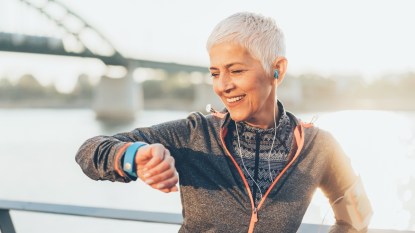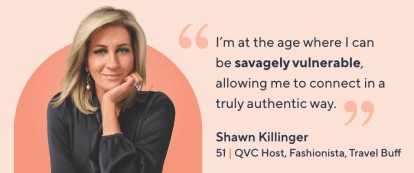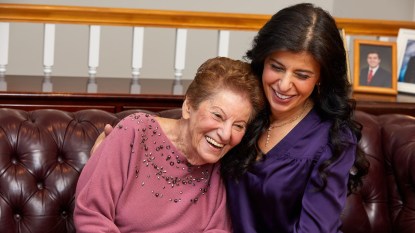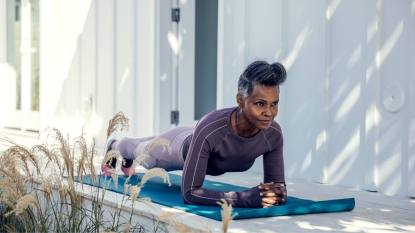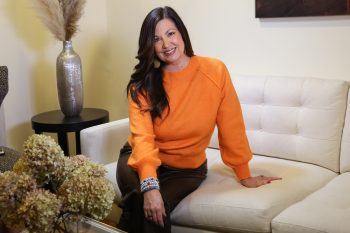The Surprising Long Haul Covid Treatment That Helped One Woman Finally Recover
"In just two sessions, I was surprised to find myself feeling better in both my breathing and mood."

As a COVID long-hauler, Susanne B. feared shortness of breath and chronic fatigue would sideline her for good — until she found a gentle therapy that worked as a long haul covid treatment that finally helped her heal!
Susanne B.’s heart fell as her doctor said the unthinkable: “You have to go back to work. It’s been a month since you got COVID — you’re not contagious anymore.”
“But I’m still sick,” Susanne recalls pleading, panic rising as she catalogued the symptoms she still had. She was in desperate need of a long haul covid treatment. “My shortness of breath was so bad that I had to sleep sitting up to make it easier to breathe. And with splitting headaches, brain fog, dizziness and fatigue forcing me to nap throughout the day, I couldn’t see how I could return to my job as a social worker.
“But that day, with no explanation from my doctor as to why I wasn’t healing, fear washed over me. I’d been told many times that I should already be recovered. Were my breathing issues and exhaustion here to stay forever? And — more terrifying still — what if they kept getting worse?
Fighting to breathe
“That was last April, a month after the pandemic had erupted in New York, where I live. Doctors had diagnosed me with a mild case of COVID-19, assuring me that my symptoms would abate after 14 days of quarantine, but day after day, I saw no improvement.
“I knew people with my same symptoms were being admitted to the hospital daily — and dying. Fearing for my life, I started making arrangements to get my cats to safety in the event that I needed to be hospitalized. But after the quarantine, I was frustrated that almost no one believed I was still sick.
“‘It’s just your anxiety,’ my doctor told me. Even my family began to doubt what I was experiencing, abandoning me in my time of need and leaving me stressed and hopeless.
“But when I was forced to take unpaid leave from my job, with no source of income, isolated and struggling with symptoms doctors continued to say should have resolved, I found myself at the lowest I’d ever been, emotionally and physically.
“Then one day, I found a group on Facebook founded by Amy Watson called ‘Long Haul COVID Fighters,’ for people who still had not recovered months after diagnosis. This is my lifeline! I thought as I read how COVID had been hanging on for the other group members too. For the first time in months, I didn’t feel as alone. And suddenly, there was hope that with so many people on my side, I might finally find a way to get better.
Healing with song
“Soon, the first opportunity to take a healing step forward presented itself when a member shared that Mt. Sinai Hospital had opened a post-COVID center. I made an appointment with a doctor who validated my experience, saying she’d seen many people just like me still struggling. But with therapy, those people were getting better… and she thought I could too.
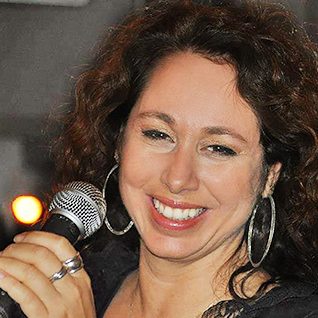
“‘There’s even a free virtual music therapy group to help people with their breathing,’ she offered. Though she made it clear that you didn’t have to be a singer to benefit from the weekly therapy, as a vocalist myself, I flashed back to a moment when I’d first been diagnosed, when I tried to sing just to keep my lungs moving — and how it had felt good, but not too strenuous.
“This could be what helps me! I thought as I got in touch with the facilitator, a music therapist and fellow COVID long-hauler, Tom Sweitzer, through his website (TomSweitzer.com) and joined the group. Before my first Zoom therapy session, I worried that my shortness of breath would get in the way of my singing, but Tom put my mind at ease, sharing his own journey and encouraging us to take it at our own pace — and to mute ourselves so we wouldn’t feel self-conscious.
How Singing Works as a Long Haul Covid Treatment
Most COVID-19 sufferers recover in two to six weeks, but a study in JAMA found that a third of patients still had fatigue, brain fog, shortness of breath and other symptoms nine months later. Singing to the rescue! Yes, this fun activity can be also be a long haul covid treatment. “Singing helps you take deep breaths so lungs can fully aerate, and it strengthens respiratory muscles, reducing the sensation of being short of breath,” says MeiLan Han, M.D., a professor of internal medicine in the Division of Pulmonary and Critical Care at the University of Michigan Health System. It also helps deliver healing oxygen to cells. In fact, a small British study found that subjects with a similar breathing condition (chronic obstructive pulmonary disease) who took a 1-hour singing class for 12 weeks had a 165 percent increase in their ability to move without feeling breathless.
“Excited, I followed along as Tom told us to take a deep breath in, although I couldn’t hold it for very long. He then instructed us to sit up straight, put our shoulders back and roll them backward and forward. Suddenly, I felt my chest begin to open up, and that, coupled with inhaling while raising my arms up and exhaling a loud sigh while bringing them back down, made me feel like I could take a deeper breath.
“Tom then had us sing along to some short phrase songs like ‘What the World Needs Now Is Love’ and ‘High Hopes,’ while pumping our arms up and down. To my amazement, I could feel my lungs expanding.
“In just two sessions, I was surprised to find myself feeling better in both my breathing and mood — and I am so grateful to Tom and the group for that. Today, I can hold my breath for far longer than when I started, and I can even make it through some songs without having to stop. Each day, I have more energy, and though it’s been a struggle, I’ve been able to return to work part-time.
“Singing therapy has made me hopeful that there will be more good days ahead and that I’m not alone. With each song, I can feel myself heal and there have even been moments when I feel like my old self again. It reminds me that music can heal physically and emotionally!”
A version of this article originally appeared in our print magazine, First for Women.


